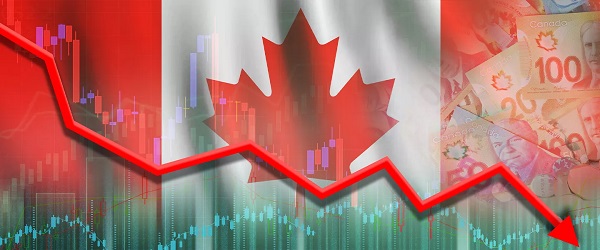Business
Poilievre Says Both Sides Lose Trade Wars, Promotes Inter-Provincial Trade
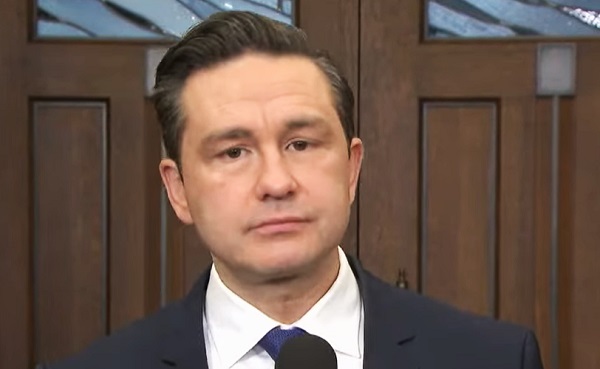
From Conservative Party Communications
A new trading partner
Conservative Leader Pierre Poilievre released a video outlining his plan to massively increase internal trade in Canada, making us less reliant on trade with the United States and potentially boosting GDP by over $200 billion per year, or $5,100 per person.
Poilievre will:
- Within 30 days of becoming Prime Minister, bring together the Premiers to agree on removing as many exemptions as possible.
- Prioritize an agreement on one standard set of trucking rules to get billions of dollars of goods moving east-west instead of only going north-south. This move alone would boost GDP by $1.6 billion.
- Create a Blue Seal Professional Licensing Standard recognized in each province so doctors, nurses and engineers can work in all provinces and territories and those Canadians trained abroad can quickly get certified and working in Canada up to our standard.
- Offer provinces a Free Trade Bonus to get a deal done. Every trade barrier removed by provinces will generate more GDP, and more revenue. Poilievre plans to give this increased tax revenue back to provinces to spend on schools, hospitals, and whatever else Premiers choose. As this bonus would only be paid out of boosted government revenues from free trade, it would not add to the massive NDP-Liberal deficit.
“President Trump’s tariffs are a wake-up call to all political leaders, who are now forced to put the national interest ahead of special interests,” Poilievre says. “Canadians will expect all political leaders to do what it takes to make our country more self-reliant and less dependent on the Americans. It starts with trade at home.”
Trade barriers between Canadian provinces are more costly than trade barriers between Canada and other nations. The result is that we now trade more with the rest of the world than we do with ourselves: in 2023, international trade was worth 66% of GDP, while interprovincial trade was only worth 36%. That makes no sense.
To understand the problem, look no further than the Canada Free Trade Agreement which is supposed to allow commerce between provinces and territories. As the Globe and Mail put it: “It is noted more for the number of exemptions it allows than for the number of barriers it actually eliminates; of the deal’s 340 pages, 133 were needed to list those exemptions.” The Montreal Economic Institute in 2023 counted a total of 245 exemptions across all provinces and territories.
Economist Trevor Tombe estimated that eliminating all interprovincial trade barriers would boost Canada’s economy by as much as 7.9% and generate an economic boost of $200 billion per year, or $5,100 per person.
Free trade in Canada will not be enough to displace the U.S. market, but this move by Poilievre will help start bringing home more business, and make Canada less dependent on forces and countries outside of our control.
We must take back control of our lives and country. That means a Common Sense Conservative government that puts Canada First.
Business
Report: $128 million in federal grants spent on gender ideology

From The Center Square
By
More than $128 million of federal taxpayer money was spent on at least 341 grants to fund gender ideology initiatives under the Biden administration, according to an analysis of federal data by the American Principles Project.
In, “Funding Insanity: Federal Spending on Gender Ideology under Biden-Harris,” APP says it “found how the federal government has been spending hundreds of millions of YOUR MONEY on the Gender Industrial Complex!”
APP says it identified the grants by searching the USA Spending database. The data, which is available for free, is categorized by federal agency; notable grants are highlighted.
The U.S. Health and Human Services Department awarded the greatest amount of funding totaling nearly $84 million through 60 grants.
The Department of State awarded the greatest number of grants, 209, totaling more than $14 million, according to the data.
Other agencies awarding taxpayer-funded gender ideology grants include:
- U.S. Agency for International Development, nearly $18 million through 8 grants;
- National Endowment for the Humanities, more than $2.6 million through 20 grants;
- Department of Justice, $1.9 million through three grants;
- Institute of Museum and Library Services, $1.87 million through 13 grants;
- Department of Education, $1.67 million through two grants;
- Department of Agriculture, $1.6 million through five grants;
- Department of the Interior, more than 1,000,000 awarded through two grants;
- U.S. Department of Housing and Urban Development, more than $548,000 through 4 grants;
- Inter-American Foundation, more than $490,000 through two grants;
- National Endowment for the Arts, $262,000 through 13 grants.
APP also identified 63 federal agency contracts totaling more than $46 million that promote gender ideology. They include total obligated amounts and the number of contracts per agency.
The majority, $31 million, was awarded through USAID. The next greatest amount of $4.4 million was awarded through the Department of Defense.
The Trump administration has taken several approaches to gut USAID, which has been met with litigation. The Department of Defense and other agencies are also under pressure to cut funding and reduce redundancies.
Notable grants include:
- $3.9 million to Key Populations Consortium Uganda for promoting “the safety, agency, well-being and the livelihoods of LGBTQI+ in Uganda;”
- $3.5 million to Outright International for “the Alliance for Global Equality and its mission to promote LGBTQI+ people in priority countries around the world;”
- $2.4 million to the International Rescue Committee for “inclusive consideration of sexual orientation, gender identity, and sexual characteristics in humanitarian assistance;”
- $1.9 million to the American Bar Association to “shield the LGBTQI+ population in the Western Balkans;”
- $1.4 million for “economic empowerment of and opportunity for LGBTQI+ people in Serbia;”
- $1.49 million to Equality for All Foundation, Jamaica to “Strengthen community support structures to upscale LGBT rights advocacy;”
- More than $1 million to Bandhu Social Welfare Society to support gender diverse people in Bangladesh.
One of the grants identified by APP, which has since been cancelled, was $600,000 from the U.S. Department of Agriculture to Southern University Agricultural & Mechanical College in Baton Rouge, Louisiana, to study menstruation and menopause, including in biological men.
According to a description of the grant summary, funding would support research, extension, and teaching to address “growing concerns and issues surrounding menstruation, including the potential health risks posed to users of synthetic feminine hygiene products (FHP);” advancing research in the development of FHP that use natural materials and providing menstrual hygiene management; producing sustainable feminine hygiene sanitary products using natural fibers; providing a local fiber processing center for fiber growers in Louisiana, among others.
It states that menstruation begins in girls at roughly age 12 and ends with menopause at roughly age 51. “A woman will have a monthly menstrual cycle for about 40 years of her life averaging to about 450 periods over the course of her lifetime,” but adds: “It is also important to recognize that transgender men and people with masculine gender identities, intersex and non-binary persons may also menstruate.”
All federal funding was allocated to state agencies through the approval of Congress when it voted to pass continuing resolutions to fund the federal government and approved agency budgets.
Business
We’re paying the bills, why shouldn’t we have a say?
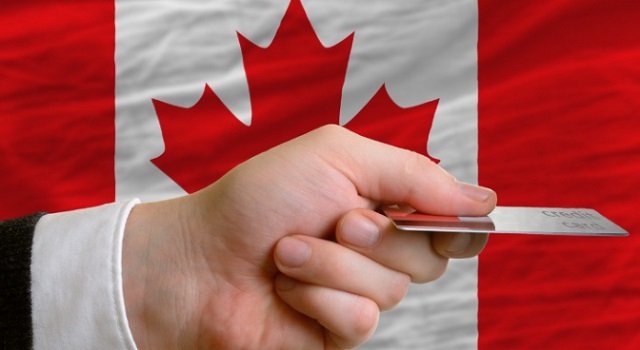

 By David Clinton
By David Clinton
Shaping Government Spending Choices to Reflect Taxpayer Preferences
Technically, the word “democracy” means “rule of the people”. But we all know that the ability to throw the bums out every few years is a poor substitute for “rule”. And as I’ve already demonstrated, the last set of bums you sent to Ottawa are 19 times more likely than not to simply vote along party lines. So who they are as individuals barely even matters.
This story isn’t new, and it hasn’t even got a decent villain. But it is about a universal weakness inherent in all modern, nation-scale democracies. After all, complex societies governed by hundreds of thousands of public servants who are responsible for spending trillions of dollars can’t realistically account for millions of individual voices. How could you even meaningfully process so many opinions?
Hang on. It’s 2025. These days, meaningfully processing lots of data is what we do. And the challenge of reliably collecting and administrating those opinions is trivial. I’m not suggesting we descend into some hellish form of governance by opinion poll. But I do wonder why we haven’t tried something that’s far more focused, measured, and verifiable: directed revenue spending.
Self-directed income tax payments? Crazy, no? Except that we’ve been doing it in Ontario for at least 60 years. We (sometimes) get to choose which of five school boards – English public, French public, English separate (Catholic), French separate (Catholic), or Protestant separate (Penetanguishene only) – will receive the education portion of our property tax.
Here’s how it could work. A set amount – perhaps 20 percent of the total federal tax you owe – would be considered discretionary. The T1 tax form could include the names of, say, ten spending programs next to numeric boxes. You would enter the percentage of the total discretionary portion of your income tax that you’d like directed to each program with the total of all ten boxes adding up to 100.
The specific programs made available might change from one year to the next. Some might appear only once every few years. That way, the departments responsible for executing the programs wouldn’t have to deal with unpredictable funding. But what’s more important, governments would have ongoing insights into what their constituents actually wanted them to be doing. If they disagreed, a government could up their game and do a better job explaining their preferences. Or it could just give up and follow the will of their taxpayers.
Since there would only be a limited number of pre-set options available, you wouldn’t have to worry about crackpot suggestions (“Nuke Amurika!”) or even reasoned and well-meaning protest campaigns (“Nuke Ottawa!”) taking over. And since everyone who files a tax form has to participate, you won’t have to worry about a small number of squeaky wheels dominating the public discourse.
Why would any governing party go along with such a plan? Well, they almost certainly won’t if that’s any comfort. Nevertheless, in theory at least, they could gain significant political legitimacy were their program preferences to receive overwhelming public support. And if politicians and civil servants truly believed they toil in the service of the people of Canada, they should be curious about what the people of Canada actually want.
What could go wrong?
Well the complexity involved with adding a new layer of constraints to spending planning can’t be lightly dismissed. And there’s always the risk that activists could learn to game the system by shaping mass movements through manipulative online messaging. The fact that wealthy taxpayers will have a disproportionate impact on spending also shouldn’t be ignored. Although, having said that, I’m not convinced that the voices of high-end taxpayers are less valuable than those of the paid lobbyists and PMO influencers who currently get all the attention.
Those are serious considerations. I’m decidedly less concerned about some other possible objections:
- The risk that taxpayers might demonstrate a preference for short term fixes or glamour projects over important long term wonkish needs (like debt servicing) rings hollow. Couldn’t those words just as easily describe the way many government departments already behave?
- Couldn’t taxpayer choices be influenced by dangerous misinformation campaigns? Allowing for the fact the words “misinformation campaign” make me nervous, that’s certainly possible. But I’m aware of no research demonstrating that, as a class, politicians and civil servants are somehow less susceptible to such influences.
- Won’t such a program allow governments to deflect responsibility for their actions? Hah! I spit in your face in rueful disdain! When was the last time any government official actually took responsibility (or even lost a job) over stupid decisions?
- Won’t restricting access to a large segment of funds make it harder to respond to time-sensitive emergencies? There are already plenty of political and policy-based constraints on emergency spending choices. There’s no reason this program couldn’t be structured intelligently enough to prevent appropriate responses to a genuine emergency.
This idea has no more chance of being applied as some of the crazy zero-tax ideas from my previous post. But things certainly aren’t perfect right now, and throwing some fresh ideas into the mix can’t hurt.
-
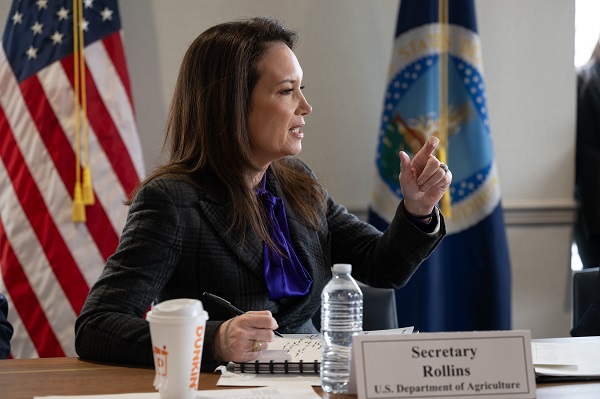
 Business1 day ago
Business1 day ago“The insanity is ending”: USDA cancels $600k grant to study transgender men’s menstruation
-

 Business2 days ago
Business2 days agoApple suing British government to stop them from accessing use data
-
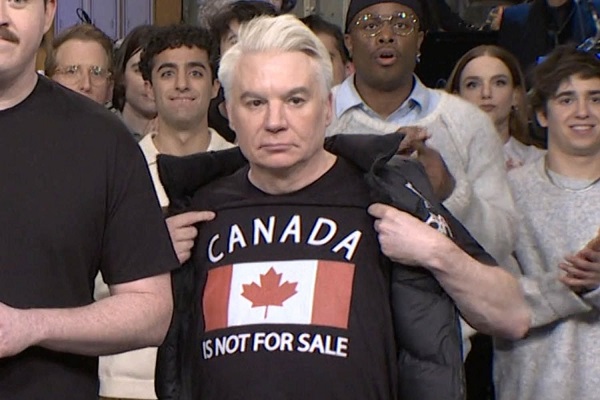
 Bruce Dowbiggin2 days ago
Bruce Dowbiggin2 days agoThe Phony War: Canada’s Elites Fighting For A Sunset Nation
-

 Censorship Industrial Complex13 hours ago
Censorship Industrial Complex13 hours agoHow America is interfering in Brazil and why that matters everywhere. An information drop about USAID
-
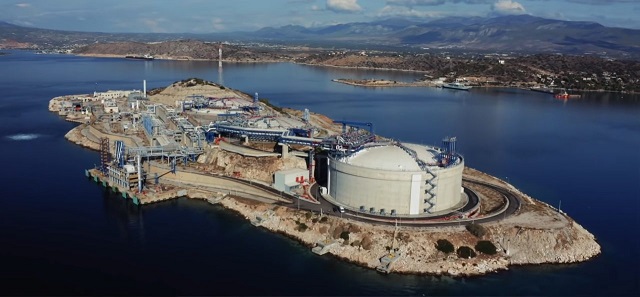
 Daily Caller24 hours ago
Daily Caller24 hours agoBiden’s Dumb LNG Pause Has Rightfully Met Its End
-

 Agriculture1 day ago
Agriculture1 day agoUSDA reveals plan to combat surging egg prices
-

 COVID-1916 hours ago
COVID-1916 hours agoCovid Response at Five Years: Conclusion
-

 Business16 hours ago
Business16 hours agoWe’re paying the bills, why shouldn’t we have a say?


